| Official Name: | Republic of El Salvador |
| Official Language: | Spanish |
| Area: | 21,041 km2 (8,123 sq mi) |
| Population: | 6,420,750 |
| Time Zone: | UTC−6 |
| Capital City: | San Salvador |
| Height (San Salvador): | 658 m (2,159 ft) |
| Currency: | USD |
| Main Cities: | San Salvador, San Miguel, Santa Ana |
| Main Port: | Port of Acajutla |
| Required vaccination for entry: | Yellow fever (15 days before traveling, only for citizens from African, South American countries and Panama) |
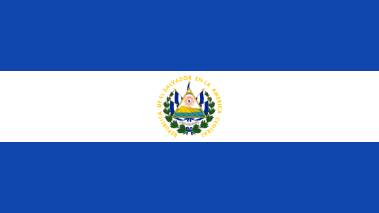
Main Risks:
Theft, robbery, kidnapping, extortion, rape, drug and human trafficking, fraud, vehicle assault.
Executive Summary
El Salvador features intermediate risks chiefly associated with the possibility of suffering armed and unarmed robbery at the hands of common criminals or organized gangs. Security risks increase if itineraries involve travel to border areas with Honduras and Guatemala. Moreover, taking into account heightened activity from violent groups in urban areas, it is necessary to avoid dangerous neighborhoods, especially those deemed critical risk locations. Given the threat posed by organized crime, we recommend hiring secure transportation and protection services.
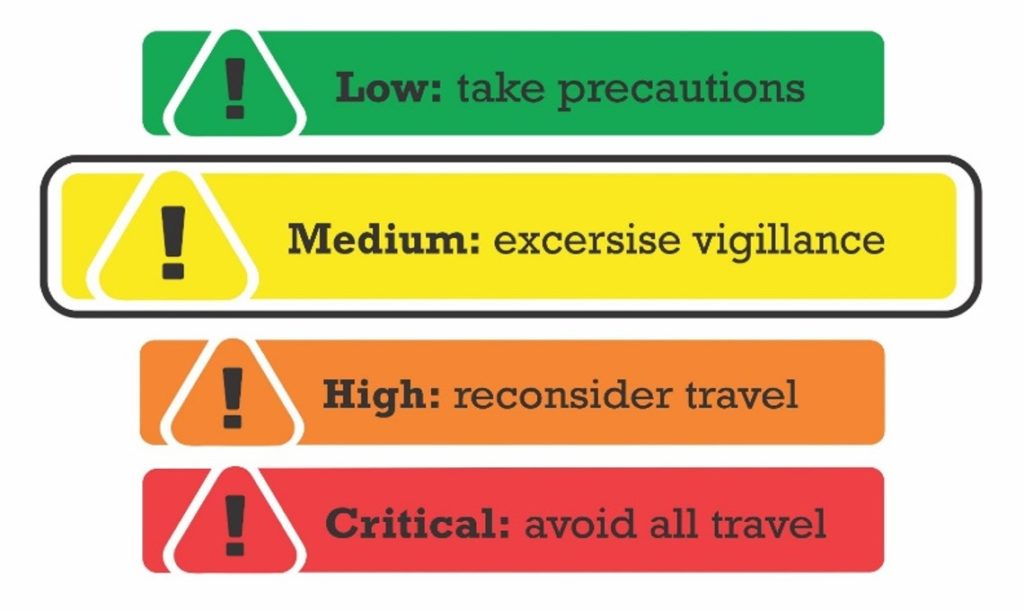
General Risk Level: MEDIUM.
Although the risk level nationwide generally stays medium, the security situation can change significantly in dangerous neighborhoods in urban areas, as well as in remote areas with little police coverage. It is thus necessary to plan ahead before traveling to El Salvador.
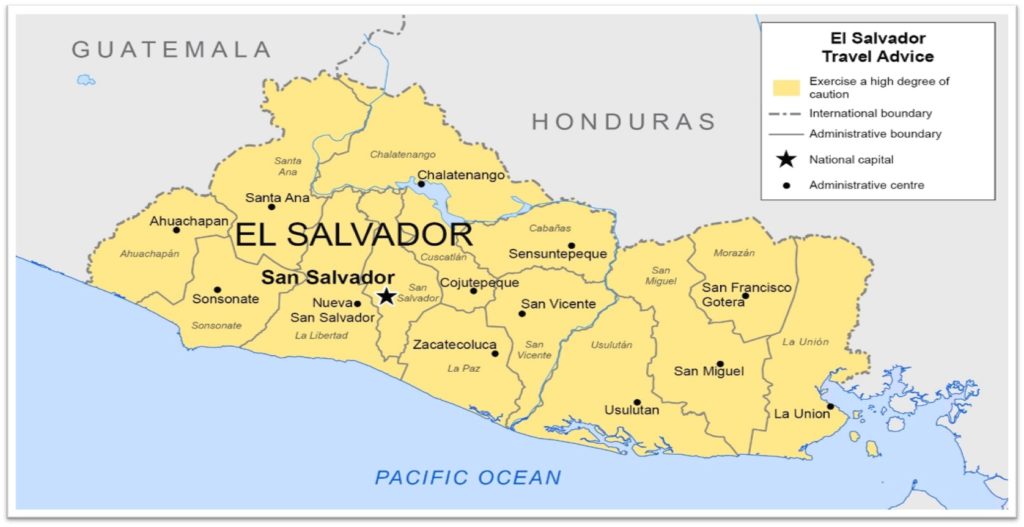
Crime and Security
El Salvador has high rates of crime and is considered one of the most violent countries in Latin America. Organized crime is the main threat to national security. Clashes between armed groups fighting for influence and territory are commonplace, especially between the Mara Salvatrucha (MS13) and the Barrio 18 gangs. Although the level of homicides has decreased in recent times due to heightened military presence on the streets, the overall security situation continues to be regarded as critical. In any case, please bear in mind that gang violence does not usually transpire in areas frequented by foreigners. That said, foreigners are still exposed, especially while traveling through land routes to countryside locations.
Low and medium-level crime represents the main threat to travelers visiting the country. The risk of suffering robbery is higher in the largest urban areas, including San Salvador. There is a distinct risk of suffering short-term “express” kidnapping. Whether planned or committed at random, criminals seek to force their victims to extract cash from ATMs before being released. Criminals often resort to operating either registered of fake taxis, taking advantage of their victim’s carelessness to transport them to remote areas beyond police control. Foreigners and locals alike are liable to be targeted.
Political rallies and events in El Salvador are not recurrent and at any rate, usually transpire peacefully. Nonetheless, as a rule of thumb, for security reasons, travelers are advised to avoid the vicinity of any demonstrations.
National police have a tourist police unit (Poltur) that operates in sites frequented by foreigners, generally in excursion sites. That said, it is a relatively small police corp, partly financed through private protection services for foreigners. Finally, please bear in mind that El Salvador has a hurricane season between June and November. Adverse weather can lead to security risks, especially in seaside areas, and may lead to travel disruptions and deficiencies in basic services.
Security in San Salvador
The safest neighborhoods in San Salvador are those concentrating the middle and the upper classes, as well as corporate activity. These are located in the western parts of the city. The areas recommended for lodging, travel, and conducting business and transactions are El Escalón, Colonia San Benito in the “Pink Zone” (Zona Rosa), Santa Elana, Colonia Maquilishuat, Nuevo Cuscatlán, and La Gran Vía. These areas are perceivably safer than others because they are better protected by security forces and private security agents. That said, in Salvador is paramount to exercise constant vigilance. Even the most privileged sites can witness violent crimes. Please consider that the historic center area is more vulnerable to crime. Most high and critical risk areas are located in the north and eastern parts of the capital. These should be avoided.
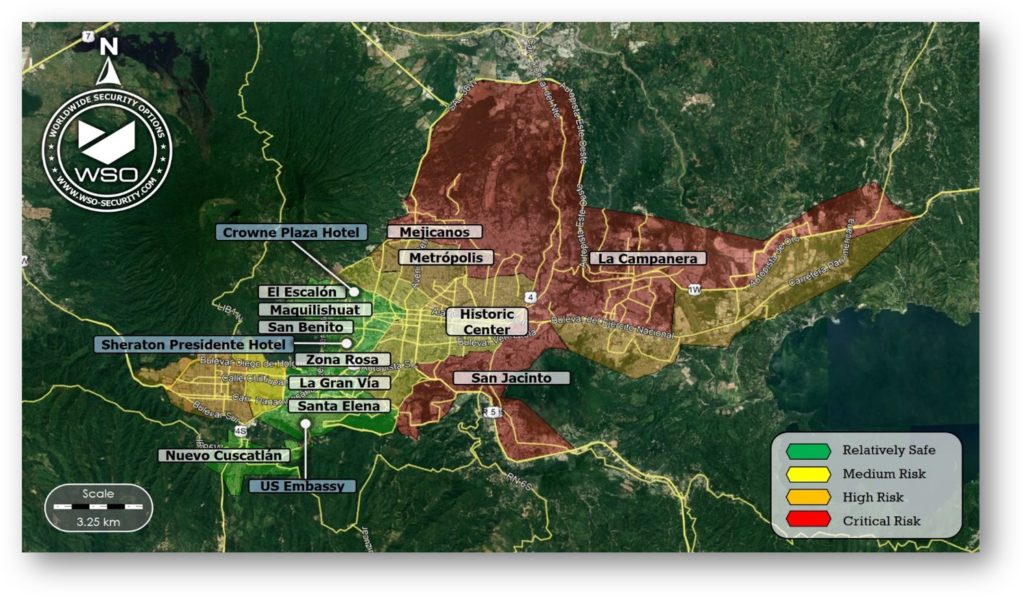
The San Óscar Arnulfo Romero y Galdámez International Airport (SAL), locally known as “Comalpa” is located about 45 kilometers away from the “Pink Zone” in San Salvador, and the trip to/from the airport usually lasts between 45 and 60 minutes depending on traffic. However, please consider that the route connecting the capital and SAL entails crossing through high and critical risk areas. Due to this situation, it is best to avoid traveling during the night hours. In any case, it is best to hire private transportation services in advance to travel to/from the airport.
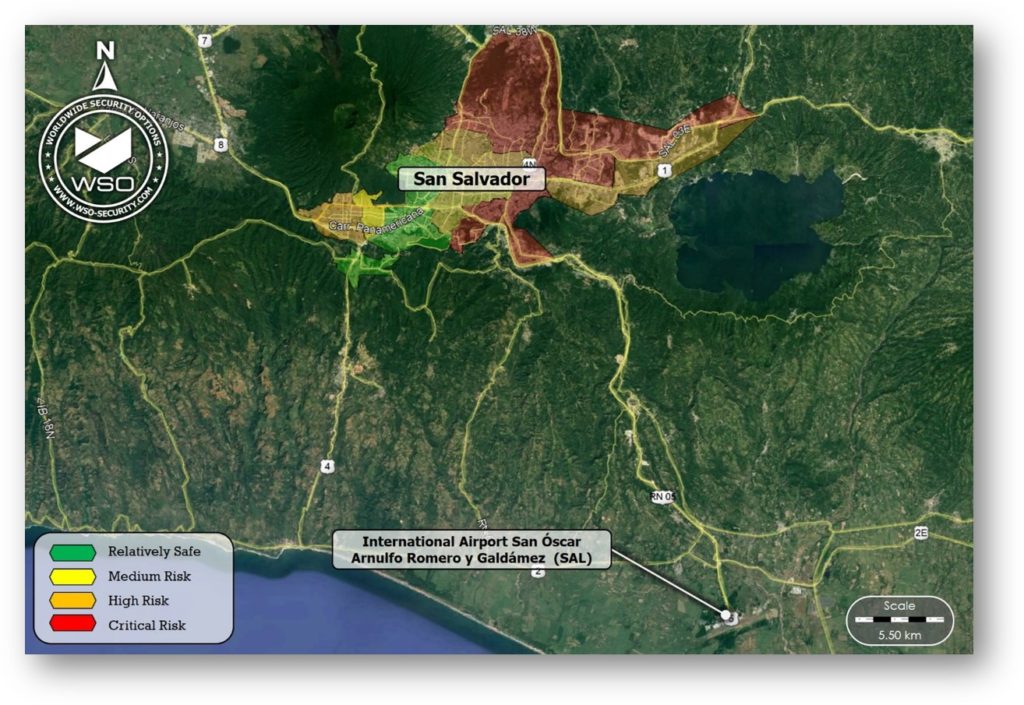
Transportation
For security reasons, in El Salvador, public transportation should be avoided. It is paramount to resort to reputable private transportation services. This is especially the case for high-profile or business trips. Moreover, we strongly recommend procuring executive protection services as well.
Although land routes are generally in good condition, traveling through sparsely populated areas with adverse topography entails security risks, especially during the night or under conditions of poor visibility. Therefore, if traveling by land, do not deviate from primary thoroughfares or highways. It is best to avoid secondary routes removed from central localities and which remain in poorer circumstances.
Furthermore, although recent times have witnessed higher security presence along the highways, criminal elements continue to target drivers and assault vehicles.
If the itinerary does involve travel through remote or sparsely populated areas, make sure to plan the route in advance under the supervision of local security professionals. Educated assessments should enable the security contractor to determine the safest route and avoid unilluminated or otherwise dangerous paths.
Health and Sanitary Conditions
El Salvador is vulnerable to tropical storms. Travelers should pay attention to meteorological conditions and avoid touristic trips during the hurricane and rainy season.
Nationals from African and South American countries and Panama are required to present proof of vaccination against yellow fever upon entry. They must be vaccinated at least 15 days before traveling. In any case, it also recommended vaccinating against tetanus, hepatitis A and B, and typhoid. Taking into account the tropical weather, it is very important to wear protection against bugs and avoid leaving body areas uncovered to mitigate the risk of suffering mosquito-borne diseases such as dengue, the Chagas disease, and the zika virus. These precautions should be followed at all times while entering remote and jungle areas. The quality of tap water in San Salvador is relatively high but this is not necessarily the case in remote and rural areas that lack adequate sanitary infrastructure. It is therefore recommended to drink sealed bottled water while visiting or staying in such areas.
It is not advised to travel without international health insurance covering emergency medical evacuation to the country of origin.
Take essential health precautions to mitigate the risk of contracting diseases or viruses. Carry masks in crowded places such as airports and maintain rules of social distance and avoid contact with surfaces of common use in public places. Always carry hand sanitizer.
Tactical Recommendations
Exercise vigilance and situational awareness throughout the trip to El Salvador, especially in urban areas vulnerable to low and medium-level criminal activity. Avoid travel to high and critical risk areas. Avoid all travel to border areas with Honduras and Guatemala. In San Salvador, avoid all unnecessary travel to peripheric neighborhoods, especially in the northeastern parts of the city.
We strongly recommend hiring private transportation and executive protection services for high-profile trips, especially if travel through the countryside is required.
Avoid carrying large sums of cash or valuables during the trip. We advise against wearing or carrying items in public that may give the impression of economic affluence and which could attract unwanted attention from criminals.
Avoid traveling through the country in sport or luxurious cars which could attract unwanted attention from criminals and corrupt police officers.
Do not resist armed robbery attempts. We recommend to always carry a few 100-USD bills for duress cases, specifically to appease criminals looking for easy money.
For security reasons avoid travel during night hours, even for traveling within San Salvador or to/from the International Airport (SAL).
We recommend lodging in reputable establishments and hotels with private security. In San Salvador it is best to stay in the “Pink Zone” (Zona Rosa) or its immediate vicinity.
If private transportation services are unavailable, resort to reputable radio taxi companies, provided they are recommended by the best hotels. Stay alert at all times while traveling by taxi to prevent the driver from taking unnecessary detours or from inflating the fare.
If travel by route through the countryside is required, avoid all detours, especially while traveling through sparsely populated rural or jungle zones. If possible, plan routes and stopovers ahead with the support of a local security contractor.
As a precaution, avoid the vicinity of every kind of political demonstration or rally in urban areas. Peaceful demonstrations are liable to be infiltrated by violent elements. Take all necessary precautions to mitigate the risk posed by mosquito-borne diseases.
Emergency Contacts
Police: 911
Ambulance: 132
Fire: 913
WSO Global Command Center: +1 956 467 4858 / gcc@wso-security.com
Security advice and assistance over WhatsApp: +593 99 461 1128 / +521 81 1511 3166







